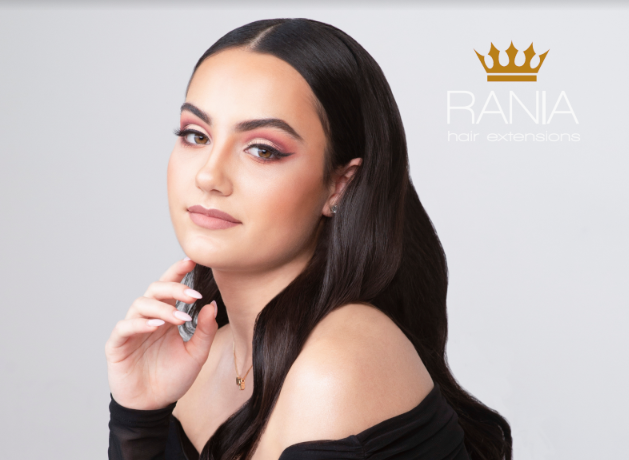“THE HAIR EXTENSION AND WIG INDUSTRY IS A BILLION DOLLAR GLOBAL INDUSTRY.”
Clients are looking for different ways to achieve long, thick, and luscious locks and hair extensions are one of them. However, it is important to be aware of the environmental and social implications. Many hair companies use buzzwords such as “Remy hair,” “cuticle intact hair,” as well as the ever so important “ethically sourced hair.”
Ethically sourced means that products are acquired in an ethical way with fair trade practices at each point in the supply chain. What does an ethical supply chain for hair look like? To make a decision on this requires us to first understand where the hair comes from and how it is collected.
Most hair in the hair extension market comes from Indian temples. A ritual head shaving ceremony called Tonsure is performed, the hair is then collected from the temple floors and auctioned. This hair is then typically processed and pooled in a large vat of bleach in order to strip its cuticle completely, and then
coloured to desirable shades. Once the hair is stripped, most often it causes lifeless and easily tangled hair. Dishonest manufacturers are aware of this, which results in them using synthetic blend mixes and silicones to disguise poor quality, while attempting to pass the hair off as 100% human, cuticle intact, or
“Remy” hair.
Hair can also be donated from willing donors or sold for a lucrative price. This is how most hair is obtained from Slavic or European countries. Most times, women will grow their hair, go to markets, and
then sell their lengths for competitive prices. Due to this, the hair obtained from these regions tends to be premium quality and usually cut from a single donor. This means that the hair is not mixed in with other donors when sold and is kept in a bundle to protect the cuticle. Hair can be lucrative to many impoverished people globally. When these individuals sell their hair, and receive fair earnings, it allows struggling communities to provide for their families.
“AS A CONSUMER, CHOOSE AN ETHICALLY RESPONSIBLE BRAND”
The hair extension and wig market has been growing rapidly, with annual sales estimated to surpass 10 billion dollars by Unfortunately, not all hair pieces are made equal. Some hair companies opt for synthetic hair, or “synthetic blends.” While inexpensive, the plastic fibers used to mimic the hair are not biodegradable or recyclable – this causes a different kind of environmental concern.
Human hair is the gold standard, it can be manipulated and treated like your own hair, and can last for years if cared for properly. However, the human hair industry has few regulations, making human hair trade more complex. Human hair is a luxury item, therefore ethically sourced hair will never come
cheap. When purchasing extensions, if it sounds too good to be true, it is always best to investigate more or contact the company for more information.
We understand that navigating the hair market as a consumer can be tricky, especially when it comes to ethics. At RANIA Hair Extensions we are proud to source our hair from consenting and fairly compensated individuals in Slavic and Eastern European countries. As well, our factories and processing facilities employ adult workers that are paid healthy wages while being provided a safe working environment. With our
true Remy human hair extensions all the cuticles remain intact, the strands face the same direction, and are full from root to tip. We encourage consumers to conduct a feel test: hair should be smooth moving
down the hair shaft, and offer slight resistance moving back up. This means the cuticles are intact and the hair has not been over processed.

